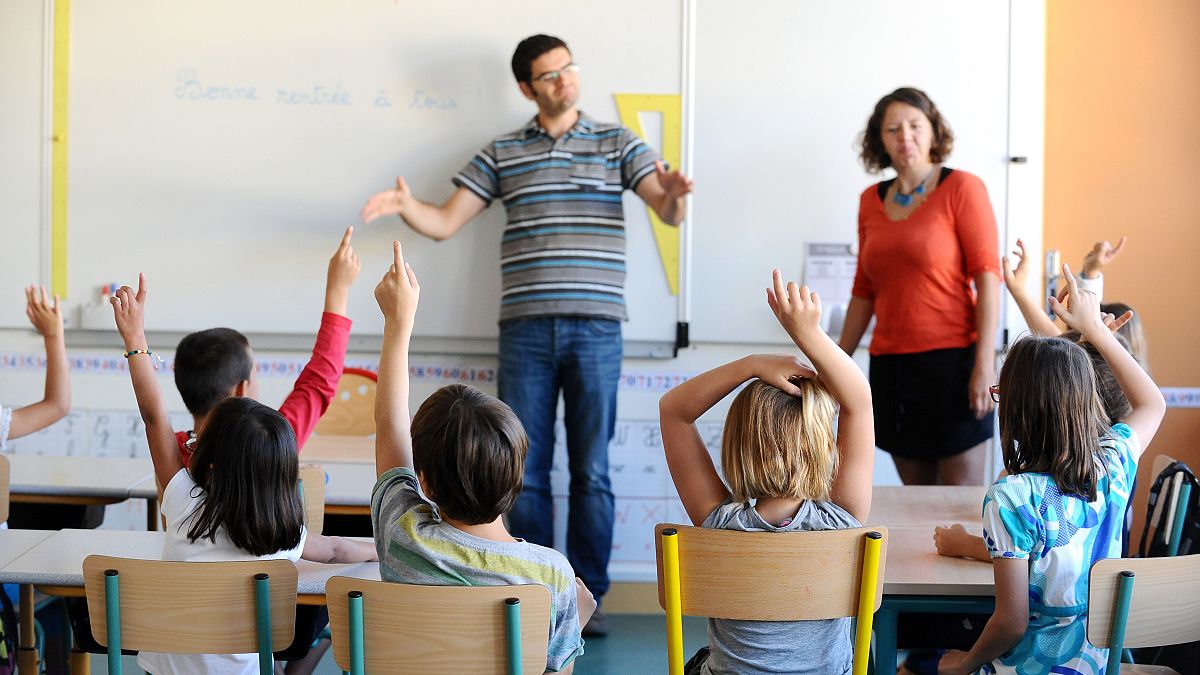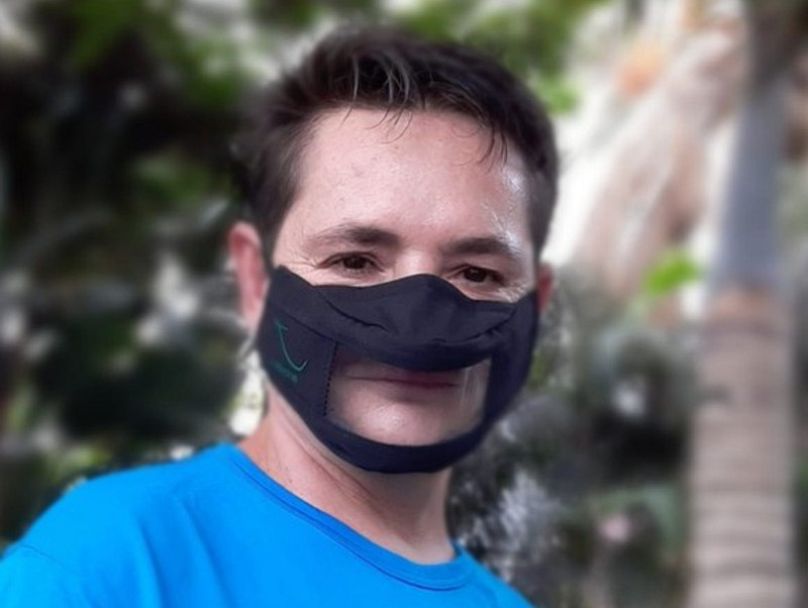For many students, a return to school ended months of disruption to their learning. But the requirement to wear face masks in the classroom means that, for deaf children, the problems continue.
Children across Europe have finally been getting back on track with their learning after months of coronavirus-related school closures.
But while the majority plough ahead with their education again, deaf children have been left labouring on the sidelines.
The requirement to wear a mask in the classroom has left those hard of hearing struggling to understand what the teacher is saying.
Activists say the situation could be solved with transparent masks, allowing the child to lip read again. But several major European countries have yet to approve such masks, leaving youngsters to flounder with ad-hoc solutions.
"When my son came back from class the first day he told us he couldn't understand anything because of the masks," Maria Navarrete from Valencia in Spain, whose 14-year-old boy Fran has congenital profound bilateral deafness.
"If this continues, I know that this is going to be a school year where Fran is going to do his best, and that's it.
'If we don't speed up the standardisation of clear masks, all the effort Fran has made is going down the drain."
"I hope that accessible masks will arrive soon and that this barrier will not be added to the many they have throughout their lives.
"It's something that has to be done quickly, in a simple way, and it has to be put in place as soon as possible, because if not, why do they go to school?"
Transparent masks allow deaf people to see a speaker's facial expressions and lip movements, which is vital for them to understand what is being said.
But there is no model available in Germany, Belgium, France, Ireland and Italy that has been passed as being safe.
Some companies or organisations have manufactured transparent masks but they have not been approved by authorities. That means there is a possibility they are unsafe or have flaws like being uncomfortable to wear or liable to fog up.
Giuseppe Petrucci, president of Italy's National Board of the Deaf, told Euronews: "Since the beginning of the quarantine, the National Board of the Deaf has called for the adoption and dissemination of approved transparent face masks, to ensure safe lip reading and at the same time protection of students, staff and teachers.
"The isolation already suffered by the deaf is increasing considerably due to the pandemic, and new services and tools need to be established to ensure the protection of a particularly weak and at-risk population group.
"This is a serious situation because the common masks that have been disseminated to date make access to communication even more problematic, if not impossible, by covering the mouth, thus hiding much of the facial expression."
Anja Gutjahr, a spokeswoman for the German Federation of the Deaf, agreed.
"For deaf students who depend on the support of a clear image of the mouth to communicate, masks are disadvantageous," she said.
"Some schools use visors instead of masks to avoid covering facial expressions and gestures and the image of the mouth, but a visor can also be reflective and is not as safe as wearing a mask."
Giuseppina Covino, secretary-general of the European Deaf Students' Union, said using sign language was not a solution because each student would need their own interpreter. Also, a lot of sign language is communicating using facial expressions, something this is harder if you are wearing a traditional face mask.
"The pandemic has greatly affected the education of deaf students because with the beginning of the lessons it was not possible for everyone to receive adequate assistance," she said.
"The use of the mask makes the participation of deaf students much more difficult as most of the time they have to read the lip of the interlocutor. With masks this becomes impossible.
"With the addition of sign language, the problem is solved, but they must guarantee a sign language interpreter for all deaf signers and this is not what is happening now."

